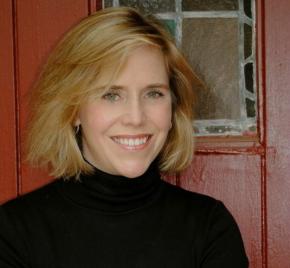Daily Devotional for Small Group Discussion: Canonize Yourself
Questions for Discussion:
Technically speaking “canonization” is the act by which the Catholic Church declares that a person who has died was a saint, upon which declaration the person is included in the “canon,” the official list of recognized saints. Lillian Daniel talks about the different understandings of what it takes to be a “saint” in the history of the church. What do you think?
Is someone a “saint” because the church canonizes them? Paul’s letter to the Ephesians seems to have a more inclusive Do you become a saint by being better than the average person? Do you have to be dead to be a saint? Or can you meet real live saints in schools, streets and stores?
Scripture Passage: Ephesians 1:15-19
I have heard of your faith in the Lord Jesus and your love towards all the saints, and for this reason I do not cease to give thanks for you as I remember you in my prayers. I pray that the God of our Lord Jesus Christ, the Father of glory, may give you a spirit of wisdom and revelation as you come to know him, so that, with the eyes of your heart enlightened, you may know what is the hope to which he has called you, what are the riches of his glorious inheritance among the saints, and what is the immeasurable greatness of his power for us who believe, according to the working of his great power.
Canonize Yourself
“I have heard of your faith in the Lord Jesus and your love toward all the saints…” – Ephesians 1:15
The late Mother Teresa, who devoted herself to the care of orphans in Calcutta, India, got fast tracked on the path to sainthood. If anyone deserved it, she did.
Usually it takes the Roman Catholic Church much longer, centuries even, but Mother Teresa’s canonization process started early, in 1999, when people could remember the real person she was. We had her journals about her spiritual struggles and some revealing biographies. Turns out she was not perfect and she didn’t have to be. But they did have to come up with two miracles to make her sainthood official last September.
Miracles aside, fast tracking Mother Teresa felt like a Protestant move to me. 499 years ago, Martin Luther nailed his “95 Theses” to a church door on the eve of All Saints’ Day to make his point. Saints don’t need hierarchical approval from popes, pastors or people. In the 1929 hymn “I Sing a Song of the Saints of God,” Lesbia Scott put it so simply that a child could get it:
You can meet them in school, on the street, in the store,
In church, by the sea, in the house next door;
They are saints of God, whether rich or poor,
And I mean to be one too.
Saints are ordinary followers of Jesus, you, me and other people, no miracles required. It’s how Paul talked about saints, and it’s how we sing about saints in another classic hymn:
For all the saints who from their labors rest,
Who thee by faith before the world confess,
Thy name, O Jesus, be forever blest,
Alleluia! Alleluia!
Because being saints isn’t about how great we are. It’s about how great Jesus is.
So go ahead. Canonize yourself. You’re just claiming what has already been given to you by Jesus, who loves us, as imperfect as we are.
Prayer
Dear God, I know my life is far less noble than Saint Teresa of Calcutta, but I get to be one too. Amen.
